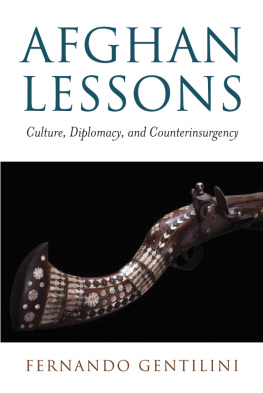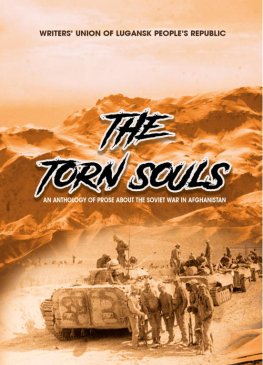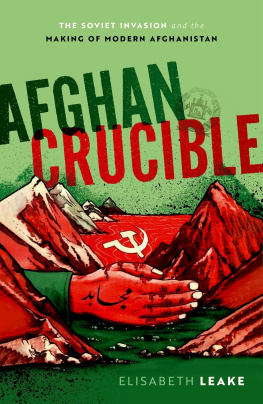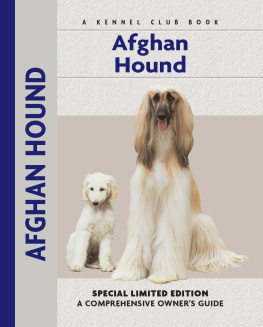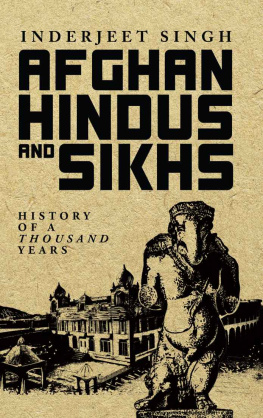BROOKINGS-SSPA SERIES ON PUBLIC ADMINISTRATION
Published in conjunction with the Scuola Superiore della Pubblica Amministrazione, Rome, this series is devoted to the study of international issues of public administration and public management.
Federiga Bindi, Italy and the European Union (2011)
Federiga Bindi and Irina Angelescu, editors, Frontiers of Europe (2011)
Giovanni Trio and Giovanni Valotti, editors, Reforming the Public Sector (2012)
Fernando Gentilini, Afghan Lessons: Culture, Diplomacy, and Counterinsurgency (2013)
AFGHAN LESSONS
Culture, Diplomacy, and Counterinsurgency
FERNANDO GENTILINI
Translated by Angela Arnone
SCUOLA SUPERIORE DELLA
PUBBLICA AMMINISTRAZIONE (SSPA)
Rome
BROOKINGS INSTITUTION PRESS
Washington, D.C.
ABOUT BROOKINGS
The Brookings Institution is a private nonprofit organization devoted to research, education, and publication on important issues of domestic and foreign policy. Its principal purpose is to bring the highest quality independent research and analysis to bear on current and emerging policy problems. Interpretations or conclusions in Brookings publications should be understood to be solely those of the authors.
Copyright 2013
THE BROOKINGS INSTITUTION
SCUOLA SUPERIORE DELLA PUBBLICA AMMINISTRAZIONE (SSPA)
All rights reserved. No part of this publication may be reproduced or transmitted in any form or by any means without permission in writing from the Brookings Institution Press, 1775 Massachusetts Avenue, N.W., Washington, D.C. 20036, www.brookings.edu
Originally published in Italy as Libero a Kabul
Copyright 2011 by Editori Internazionali Riuniti and Fernando Gentilini
The opinions expressed in this book belong to the author and do not necessarily reflect those of the Atlantic Alliance or of the Italian government.
Library of Congress Cataloging-in-Publication data is available.
ISBN 978-0-8157-2423-0 (pbk : alk. paper)
9 8 7 6 5 4 3 2 1
Printed on acid-free paper
Typeset in Sabon
Composition by Cynthia Stock
Silver Spring, Maryland
Printed by R. R. Donnelley
Harrisonburg, Virginia
TO MY FATHER
WHENEVER HUMANITY SEEMS condemned to heaviness, I think I should fly like Perseus into a different space. I don't mean escaping into dreams or into the irrational. I mean that I have to change my approach, look at the world from a different perspective, with a different logic and with fresh methods of cognition and verification. The images of lightness that I seek should not fade away like dreams dissolved by the realities of present and future.
Italo Calvino
From Six Memos for the Next Millennium:
The Charles Eliot Norton Lectures 198586
FOREWORD
THIS IS A book about different worlds, different realities. The reality of everyday life in an unreal world. People that need to be looked after, jobs that need to be done, a country that needs to be restored, all from within the necessary confines of an armed camp. And this in the middle of another reality, which we do not understand, full of things forgotten under decades of war. The keys to this reality lie in the past, perhaps lost.
Footfalls echo in the memory
Down the passage which we did not take
Towards the door we never opened
Into the rose garden.
And then there is the reality of policy, and of the massive foreign military resources behind political and civilian objectives. But politics is immune to foreign influence. And foreign armies are not good at dealing with local civilians. And the reality of noble aimson both sides: this is why they fightmeeting the lives of ordinary people whose aims in their own way are also noble, though much less grand. Mostly these realities exist in parallel, side by side, meeting only in mutual deception, or when bodies are torn apart by bombs.
On the author's bedside table lie the U.S. army counterinsurgency manual and the poems of Rumi, the thirteenth-century mystic, the two best guides to the realities of Afghanistan.
As one of the Afghans in the book says: the wildflower has the luxury of blooming for no reason. This book too is written for no reason but also for its own reasons. That makes it honest. It also means you do not need to read it. But why not?
ROBERT COOPER
Member of the European Council on Foreign Relations and former colleague of the author
PREFACE
I THINK THE colors I saw in my two years in Afghanistan don't exist anywhere else in the world. I saw sunsets that could have come from Photoshop, suns that weren't red, moons that weren't yellow, skies of the clearest blue. But, above all, I saw stars so close they could have been part of the landscape.
I inhaled a scent of apricots like that of my childhood memories, but the balsam, poplar, and sulfur sand were new to me.
I saw men dressed like figures in a Nativity tableau, and women in chadors chatting on cell phones, and a three-year-old girl who seemed content to be barefoot in the snow.
I ate at a tavern where the cold froze the water in our glasses. In another, the waiters spun into trances to the sound of Sufi music on the radio.
I watched convoys of international forces terrorize the city's streets, heedless of old men on their bicycles and the children popping out of every nook and cranny.
I saw a fighting dog with a human foot between its jaws and a gang of screaming kids trying to drag the foot from the dog as if it were the most natural thing in the world.
I flew on all sorts of military aircraft, some as high as four-story buildings, and on combat helicopters where I discovered that motion sickness is worse than seasickness.
I found the highest concentration of white Toyota Corollas per square mile. A golf course without a single blade of grass. The world's only art school without paints or brushes.
I understood why the Afghans always defeated the British and why even the Russians, in the end, were forced to retreat, and over time I became pessimistic.
I saw military commanders at work who were so ballsy that I immediately agreed with those who write that war is too serious a business to leave it entirely in their hands.
I met international operators who thought they knew everything, when they knew nothing, and diplomats I wouldn't trust to run a restaurant, let alone the foreign policy of a nation.
I understood that wars can be random, unavoidable, necessary, that they can drag on for reasons other than those for which they began, but that they're never right even when it seems that they are.
I met the world's most elegant head of state, and I watched warlords rubbing their feet and scratching their ears with ballpoint pens as they sat on parliamentary benches.
Now I can tell the sound of a rocket-propelled grenade from a mortar; I can figure out if an explosion occurred less than half a mile away; and watching how the smoke rises, I can tell if it was a car bomb or a landmine.
I watched just how much human beings can endure, like trained animals. For example, I once saw a father sitting in a bunker in the middle of the night, dressed in a helmet and flowery boxers, sipping cardamom tea as he spoke on a cell phone to someone on the other side of the world, studying his tapered hands from time to time, as if he were checking out a manicurebut for the rest, it seemed nothing was up.
In a mountain village, I met a nomad swathed in a blanket, crouched on a kind of column capital, just as I'd read in a book.

